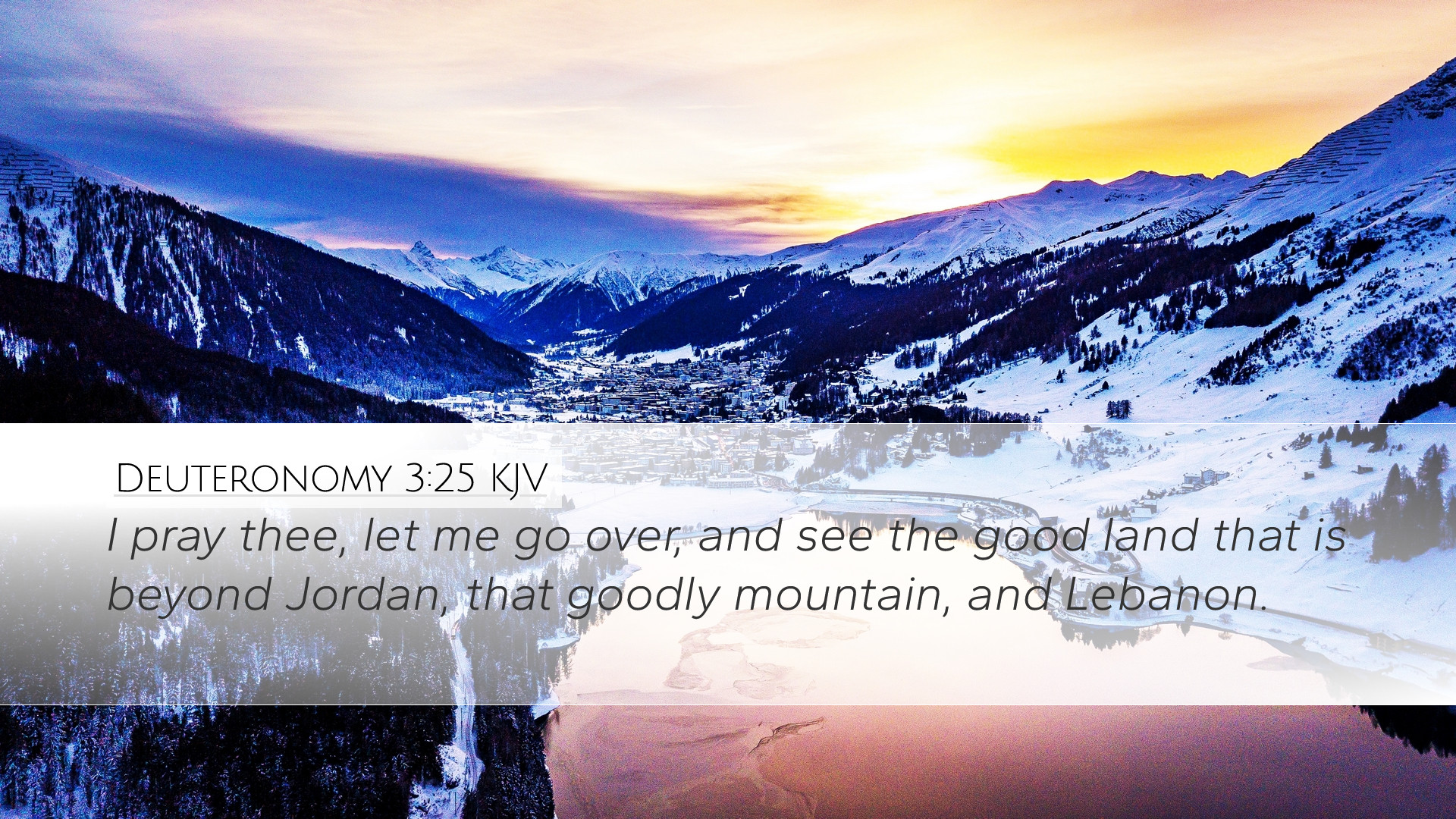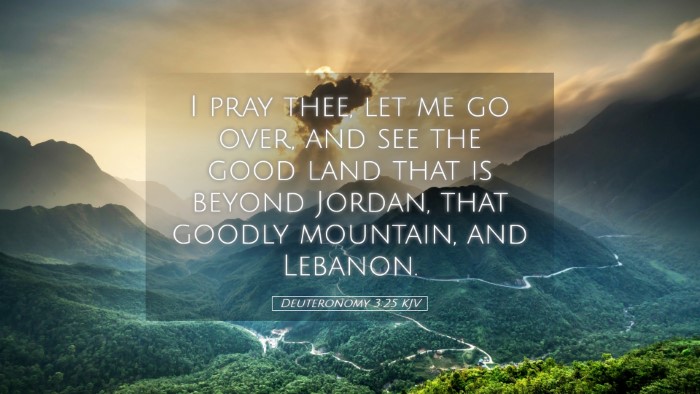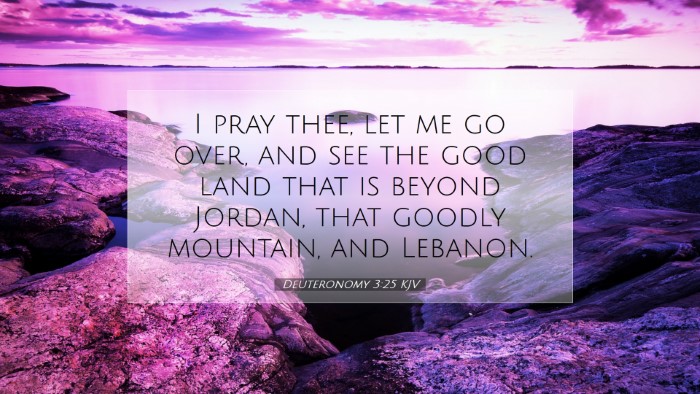Commentary on Deuteronomy 3:25
Verse Context: Deuteronomy 3:25 states, "I pray thee, let me go over, and see the good land that is beyond Jordan, that goodly mountain, and Lebanon." This verse is part of Moses’ plea to God, expressing his desire to enter the Promised Land.
Overview
In this poignant plea, Moses reveals his deep longing to enter the land of Canaan, a desire rooted in his faithful leadership and dedication to God’s promises. This moment encapsulates the tension between divine promise and human limitation, offering rich insights for pastors, scholars, and students alike.
Commentary Insights
1. The Significance of Moses' Plea
Matthew Henry emphasizes that Moses’ request serves as an illustration of the importance of desire in the spiritual journey. His earnestness is commendable; he yearns to see the fulfillment of God’s promise. Moses, having led the Israelites through trials, desired to witness the land that had been promised to them. This desire is not merely for personal gratification but stems from his commitment to God’s covenant.
2. Understanding the Land of Promise
Adam Clarke gleaned insights into the nature of the land that Moses wishes to see. Clarke highlights that the Promised Land is described as a place of abundance, filled with resources and blessings. The “good land” signifies not just physical prosperity but a space of spiritual rest and fulfillment. For modern-day believers, it symbolizes the hope of eternal life and the abundance found in Christ.
3. Reflecting on Moses' Leadership
Albert Barnes reflects on Moses' role as a leader. Despite his faithfulness, Moses is reminded that he will not enter the land. This moment illustrates the principle that leadership involves both privilege and responsibility. Moses’ leadership culminated in the delivery of the law and guidance through wilderness wanderings, but he must also accept God’s sovereign will. This serves as a sobering reminder that God’s plans may not always align with human expectations.
4. The Emotional Landscape of Moses
Moses’ longing to enter the land shows his deep emotional investment in the journey of his people. Henry notes that this emotional appeal is important as it humanizes Moses. His vulnerability invites readers to empathize with his plight. Such emotional expressions are critical for understanding God's dealings with His people, showcasing that He values not only obedience but also the desires of the heart.
5. Implications for Believers Today
The variances in Hebrew scripture illustrate the multifaceted relationship between God and humanity. Barnes suggests that believers today must grapple with the tension between their hopes and God’s plans. Moses’ plea can inspire contemporary Christians to approach God with their desires while also submitting to His wisdom and timing. The acknowledgement of unmet desires encourages humility and deeper faith.
6. Theological Reflections
Clarke posits that this moment further reinforces God’s sovereignty. While Moses longed to see the land, it was not part of God's plan for him to enter. This introduces themes of providence and predestination, reminding us that God's purposes prevail despite human efforts. The theology of grace is evident here; though Moses was denied entry due to prior disobedience, his legacy endures through the people he led.
7. Lessons in Perseverance and Faith
Moses' experience is a testament to the necessity of faithfulness even in the face of disappointment. Henry describes how persistence in spiritual desire is crucial, even when the fulfillment may not be evident in our lifetime. This lesson rings true for pastors and leaders who may labor in ministry without seeing the tangible results of their efforts. The call to be faithful, regardless of outcomes, is a central tenet of the Christian faith.
Conclusion
Deuteronomy 3:25 serves as a profound reminder of the complexities of faith, leadership, and submission to divine will. Through the combined insights from public domain commentaries, we find a rich tapestry of understanding that encompasses the desires, disappointments, and faithfulness of Moses. For pastors, theologians, and students of the Bible, this verse encourages reflection on the nature of God's promises, the call to leadership, and the importance of desiring a deeper relationship with God.


